
The Rational Revolution and Hegel
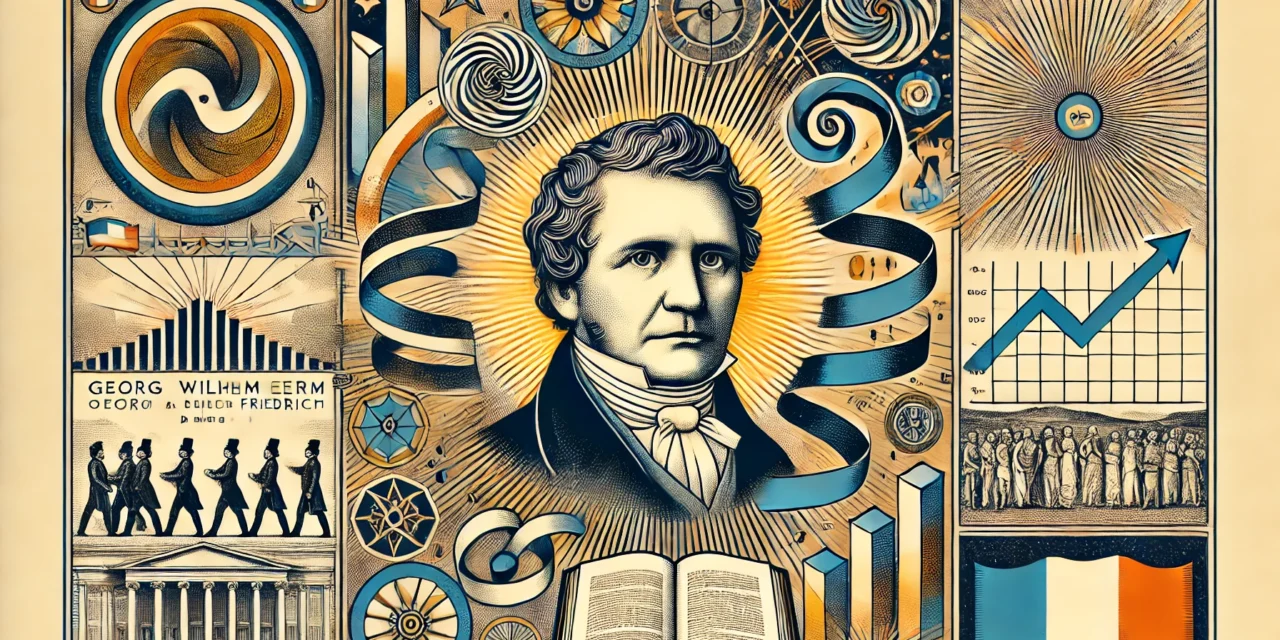
The Rational Revolution and Hegel
Abstract
In his book The Open Society and Its Enemies, Karl Popper considers Hegel’s philosophy as the ideological precursor and forerunner of fascism. Numerous articles inspired by his two-volume book have been published and continue to be published. Popper’s concept of the “Open Society,” with the illusion that it refers to the freedom of society, has gained many supporters even among leftist circles. The last decades, during which “color revolutions” erupted in Ukraine and Georgia with substantial support from figures like George Soros, have more clearly shown that Popper’s “Open Society” means the opening up of countries previously closed to Western capital. This book was one of the most popular ideological weapons of the West during the Cold War era.
Undoubtedly, despite its perspective errors, the critiques the book brings against totalitarian-fascist state understandings and structures (e.g., Hitler’s fascism and Stalinist dictatorships) are correct. But to claim that the political-theoretical backgrounds of these structures—that is, that those who produced these dictatorships drew their intellectual nourishment from Plato, Hegel, and Marx—is, under the camouflage of criticizing fascisms on which everyone would agree, cunningly attacking the intellectual heritage that gave a revolutionary direction to the tendencies of human history.
Introduction
The History of Theory
All the injustices that have befallen Hegel’s theory of this kind, whether knowingly or unknowingly, stem from the metaphysical deviation in the comprehension of the theory.
This way of thinking examines the theory by severing it from its historical context in which it was formed, and in this form, the theory is presented for the desired personal or political need.
This presentation essentially takes two forms: The old theory is either directly made the theory of the action being carried out in the present, or indirectly made the premise from which the theory underlying the action is deduced.
The old theory, taken by detaching it from its material context, naturally does not serve any purpose in solving the problems arising in the present, and instead of seeking the fault in the way the theory is approached, the blame is entirely placed on the theory, and the theory is falsified and set aside.
Moreover, even if the old theory, in practice, has been verified in explaining past reality.
In the second case, the old theory is made the premise of the new theory. That is, the new theory is produced as the logical result of the previous theory; as if reality develops in accordance with this logical deduction. Undoubtedly, logical development comes after the development of reality and develops parallel to it.
In both cases, we witness the metaphysical comprehension of the theory as a theory.
As if Hegel, sensing the injustice he would suffer with his deep insight, says in the Philosophy of Right: “As for the individual, everyone is a child of their time; likewise, philosophy summarizes its own time in thought. To imagine that any philosophy can transcend its contemporary world is as absurd as thinking that an individual can leap over their own time, can jump over Rhodes.”^5
This giant master of dialectics, who demolishes metaphysics with all its structure, says on the next page: “Let us say another word on the claim of teaching the world how it ought to be: Philosophy always comes too late for this. As the thought of the world, philosophy appears only when reality has completed its formative process. What the concept teaches, history shows with the same necessity: Only when actuality is mature does the ideal appear against the real and, after grasping the same world in its essence, rebuild it as an intellectual realm. When philosophy paints its gray on gray, a form of life has grown old, and with gray on gray, it cannot be rejuvenated, but only known. The owl of Minerva begins its flight only with the falling of dusk.”^8
Hegel refers to Goethe’s Faust: “My dear friend, all theory is gray, and green is the golden tree of life.”
If we momentarily forget that Hegel perceives the existing as Reason, we are faced with a completely materialist discourse. Along with Hegel, to understand and explain a philosophy, as well as all kinds of thought structures, religion, art, and of course political institutions—that is, the state and legal relations—it is necessary to look at the material conditions of the eras in which they were formed.
It will be seen that all these structures—ideological, political, and legal—are conditioned by given social relations, and their understanding depends on the analysis of these relations. “The mode of production of material life,” says Marx, “conditions the general process of social, political, and intellectual life.”^10
A theory rises upon the material data of its own era. For example, if you are to speak of a scientific revolution, you have to wait for the 17th century. If you are to discuss German Idealism, you have to wait for the French bourgeois revolution, Rousseau, and the rational revolution.
The mistaken notion, which includes Hegel, that once born, thought—which often exhibits autonomous and even independent manifestations over individuals—arises from its natural structure, and it is supposed that thought, actually derived from material ground but independent in the opposite direction, as Reason, possesses an internal development dynamic and evolution that can unfold and develop from itself. It is again from this assumption that thought, which is supposed to have an objectivity in itself, is claimed to have a history. This thesis is defended in our age, more by philosophers of science, for example by R. S. Westfall et al.: “In my opinion, the element in the formation of modern science is the development of ideas according to their own internal logic…”^11 Even though they could not show the development of the concept of the atom, which Democritus discovered—of course rationally—in ancient Greece, and the development of the thought system he formed, through its internal evolution, to quantum theory.
Neither theory nor any political and legal relationship has its own history. That is, a theory or form of state does not arise from the internal evolution of the previous theoretical or state form; the new theoretical structure finds its ground in the newly developing material conditions.
Expressed using Hegel’s language, while the idea explains the reality it corresponds to, it also includes in a critical manner the ideas that are abstract expressions of the yet undeveloped forms of reality. It contains them by surpassing them.
Thus, Hegel and his philosophy must be taken and understood within the material conditions, limits, and framework of their own era. Otherwise, neither Hegel nor fascism can be understood.
Only Marxists have understood and explained both of them in our age: “…Abstract determinations lead to the reproduction of the concrete by way of thought. In this way, Hegel conceived the real as the product of thought concentrating itself, probing its own depths, and moving from within itself. But the method of rising from the abstract to the concrete is only the way for thought to appropriate the concrete, to reproduce it as a concrete in the mind.” Grundrisse, Introduction, p. 169.^3
The Rational Revolution
In the depths of scholasticism, at least after the 14th century, the “modern thought” that slowly emerged into daylight was essentially a reflection of a series of socio-economic developments that began in the 16th century—developments that signaled a new era. Feudal aristocracy, which could survive until the 15th century, first lost its political and then its economic importance. Kings united with wealthy merchants and replaced the feudal aristocracy, and mainly the wealthy merchants were causing the gradual dissolution of the aristocracy.
Peasants fleeing serfdom were flocking to cities as lumpen proletarians and, of course, as consumers; the increasing life needs of people were putting great pressure on craftsmanship, and this was leading to the rapid development of technical skills and the sciences and scientific discoveries that served the development of these skills.
Copernicus’s theory, published in 1543, was being taken up, corrected, and developed by Kepler and Galileo, and was steadily advancing to become the dominant scientific view of its time. The religious authority that saw humans as irrational or that connected everything to God and his earthly representatives was being rejected first in Italy with the Renaissance and then gradually moving into the interior of Europe, with Luther in Germany.
It seemed as if all life was progressing towards the dominance of the bourgeoisie and its Reason, as if pre-established.
Feudalism is based on personal dependent relationships; in these relationships, the individual does not exist and is completely insignificant. The individual-centered commodity-dependent relationships were developing by breaking down the old relations. In commodity-dependent relationships, the individual comes to the forefront, breaks free from the chains of old relations. This also leads him to a mental liberation from traditional values. The former person, who was subject to his community, is gone, and in his place comes the rational person who is self-confident, who knows that he carries within himself the power to change the world.
This liberal understanding first emerged in England and the Netherlands, where the socio-economic development found its ground. The bourgeoisie now wanted political power with the strength of economic power. The greatest power to help them in this would be Reason.
It is clear that the bourgeois era finds itself in the exaltation of Reason. Hegel also sees philosophy as a product of historical development. According to him, history has reached a phase where the possibilities of actualizing human freedom have been seized.
“Philosophers demonstrate this value; nations will learn to feel it and will not only demand their trampled rights but will take them back with their own hands, will make them themselves,” Hegel said in a letter he wrote to Schelling in April 1795.^6 As Hegel explicitly described, since Descartes, philosophers not only hailed this era but also presented the rational understanding of the era. Reason found its actual power in the French Revolution and its greatest exaltant in Rousseau, who was the true child of this revolution.
However, its impact could not be limited to France because it was the reality of its time. Therefore, Reason found its essential development in German Idealism. It can be said that German Idealism is the theory of the French Revolution. The concepts of German Idealists were significantly determined by the ideas of the French Revolution. So much so that all German Idealists welcomed the revolution with enthusiasm and called it the dawn of a new universe: “Since the sun stood in the firmament and the planets revolved around it, it has not been understood that man brings into being in his mind, i.e., in thought, and establishes actuality accordingly. Anaxagoras was the first to say that Nous, Reason, governs the world. But only now has man reached the point of understanding that the spiritual actuality of thought must govern reality. Therefore, it was a glorious dawn. All thinking beings participated in celebrating this phase.”
Let us refer to H. Marcuse’s concise words: “As the German Idealists saw it, the French Revolution was not only abolishing feudal absolutism and replacing it with the economic and political system of the middle class, but it was also completing the effort that the German Reformation had begun—the liberation of the individual as the master of his own life, relying on his own power… Henceforth, the struggle with nature and with social organization would be guided by his own progressive advances in knowledge. The world would become an order of Reason.” Reason and Revolution, p. 3.^7
It is now seen that Hegel, including all of German Idealism, had a philosophical system and, especially in his philosophy, the central concept of Reason was being shaped as the defence of the individual’s free action against feudal absolutism and despotism. Historically, German Idealism is the theoretical representative/expression of the early bourgeois period.
The characteristic of this period is that economic liberalism leads to political liberalism, and the philosophical system shaped upon this is influenced by this. Therefore, as claimed, neither Hegel’s philosophical system can propose a totalitarian state nor can it be the thought of it. Hegel’s Reason is the child of his time—the age of bourgeois revolutions; he cannot do it even if he wants to.
After understanding this historical ground, we can move on to Hegel’s philosophical system.
Hegel and the Determinations of Reason
I would like to remind the reader that the understanding of Hegel’s philosophy, including the topic we are discussing here, requires reading it as a whole. Moreover, just reading his works will not provide the reader with the satisfaction they are seeking. Understanding Hegel depends on the critical evaluation of the material conditions of his time and the intellectual accumulation of the era, including the trilogy of Kant, Fichte, and Schelling. This is so for two reasons:
First is historicity; the moment of the development of the bourgeois era gave Hegel the priority to see, handle, and present things in their historical contexts. Undoubtedly, there were many philosophical authorities in his time, but this was also due to him being a genius with an encyclopedic knowledge base. It can be said that he seized the priority offered by the bourgeois era and rightfully took his place in history as the greatest philosopher.
We Marxists are almost the only ones who recognize Hegel’s place in history. So much so that Lenin, in his Philosophical Notebooks, linked the understanding of Marx’s Capital to the understanding of Hegel’s Logic.
Now I can comfortably state that without understanding Hegel—which means understanding all philosophical systems—Marxism cannot be understood. Whenever we face modern problems produced by our age, our frequent recourse to Hegel is entirely due to this fact.
Secondly, it is logicality. For the first time, Hegel examined a science in its historicity, with internal interconnections, as a whole. Let us immediately add that the second time, Marx did this in Capital, and later this has not been seen even in Marxist literature. It can be said that no Marxist, including Lenin, has handled and processed a science at the level of Hegel-Marx.
Being and nothingness concepts cannot be understood without understanding the concept of becoming; the concept of becoming cannot be understood without understanding the concept of essence, etc. Therefore, discussing parts without understanding the whole or assuming a general agreement on the whole is a waste of time.
Now let’s take a closer look at Hegel’s system.
We have conveyed that the concept of Reason is the central concept of Hegel’s philosophy. So much so that all concepts and their actualizations emerge as the determinations of Reason.
Hegel, in accordance with the philosophical tradition of his time, assumes that there is an objective Reason and its totality of concepts that rule over individuals and their thoughts. For this reason, Hegel’s idealism is called objective idealism.
In Hegel, the process is driven by “Contradiction.” Contradiction culminates in the speculative mode. But this time, in the mode it has reached, it encounters new contradictions, and this development continues in this way.
Development manifests itself in three moments:
- Positivity Mode
- Negativity (Dialectical) Mode
- Speculative Mode
All these modes gain their functionality in the actualization process in the actuality of the Spirit. Likewise, these modes are determinations of the Concept.
Reason embarks on this historical adventure to actualize freedom. In this adventure, Reason first takes place in the spatial-temporal world. The term that signifies Reason as history is the Spirit.
The Spirit is first in itself. Here, as absolute reality, it knows itself, and here, it is the idea that thinks itself, which is Logic. Hegel says, “Logic is the knowledge that the idea is a single totality.” Logic consists of the Doctrine of Being, the Doctrine of Essence, and the Doctrine of the Concept.
From here, Hegel says, “We have returned to the concept of the Idea with which we began. At the same time, this return to the beginning is a progression. The thing with which we began was Being, Abstract Being; now before us stands the Idea as Being; but this Idea that is being is Nature,” thus moving on to the philosophy of nature.
The Spirit Given as Nature
Nature develops from inorganic nature to organic nature, and from there to the thinking being, the human. Nature is the Spirit alienated from itself. Man, who grasps nature with his thought, will overcome this alienation in the human Spirit. With the human who understands himself, the Spirit, as Spirit, knows itself and reveals itself.
The Spirit Manifesting in the World of Culture
First, it appears in humans: (a) Subjective Spirit. From here, it appears in society as inter-human relations; (b) Objective Spirit.
Here, individual will unites with the general will. The individual adopts general ethicality as his own ethicality, feels the law above himself as his own law.
The Spirit, which has become self-conscious, (c) Absolute Spirit: Religion, art, and philosophy. The Spirit lives its true conscious adventure in the world of culture and sees and comprehends the entire historical process as its own actualization in philosophy.
Thus, Reason comprehends its historical action as its own actualization. This culmination of Reason signifies that it has become free. Because freedom is the consciousness of necessity. That is, it is knowing the laws that dominate man as nature in nature and in his social nature, and bringing it under his own control. Therefore, Reason is the sovereign. Already, this knowledge shows him that he is reality itself. Reality, as absolute reality, is God.
In this way, we are providing a schematic presentation of Hegel’s philosophical system or rather the historical adventure of Reason.
“WHAT IS RATIONAL IS ACTUAL;
AND WHAT IS ACTUAL IS RATIONAL.”
“EVERYTHING REAL IS RATIONAL,
AND EVERYTHING RATIONAL IS REAL.”
Only that which is thought, understood, and comprehended with Reason exists as real, and that which exists as real is that which is thought, understood, and comprehended with Reason. This determination is almost like a summary of Hegel’s entire system. Therefore, it has an absolute depth.
Its comprehensibility, just as the understandability of Hegel’s philosophy depends on the material living conditions of his era and the intellectual accumulation of the era, now to make this determination understandable, let’s look at its place in Hegel’s philosophical system and how Hegel handles it here.
After presenting Hegel’s determination “What is rational is actual; and what is actual is rational,” Karl Popper and his followers continue as follows: “It is impossible to find throughout history a toy as despotic and incompetent as this proposition that serves the interests of despotic and incompetent governments. Thus, everything that exists is sanctified, becomes the best of all possible worlds, and moreover gains a historical mission as a necessary stage of development for the realization of the absolute idea in history,” they say.^19
It is seen from the outset that they are evaluating Hegel from the perspective of neo-Hegelian currents that have misunderstood him. These currents have brought Hegel closer to positivism and, by subordinating Reason to fact, they have been able to escape the critical power of Reason. K. Popper writes under these influences.
Even children know the difference between themselves and nature. The first humans also knew this. Humanization is also the development of the consciousness of separating oneself from nature and being different from nature. Every person knows that his thoughts are products of his Reason (mind), that they have no ontological relationship with nature. Human thought is not something that exists ready-made in nature, which humans find and use like natural entities.
But at the same time, man is a product of nature, a natural being. Is man’s organic (living) natural being the bond between nature and his own thought?
This is a subject of debate that philosophers from ancient times to the present have established countless systems upon. And this duality (dual structure) has been the most important philosophical problem that philosophy has tried to overcome throughout history. Some have broken the stick in favor of nature, saying that nature is the prior existence; others have said that everything, including nature, is the creation of Reason (Mind).
Kant tried to overcome this problem by constructing his philosophy upon a kind of dualism. But while he accepted natural existence as the real essence behind the phenomenon, the Noumenon (thing-in-itself), he developed an agnostic epistemological understanding that claimed it could not be known by Reason. According to him, we could only know the phenomena that presented the qualities of the Noumenon.
In response, Fichte, Hegel’s contemporary and friend, and at the same time the intellectual link between Kant and Hegel, tried to overcome Kant’s dualism by accepting the ‘I’ as the absolute rational human and created a system. Everything, including nature, is the creation of this ‘I’. Fichte, rightly, by saying that Kant’s unknowable Noumenon (thing-in-itself), whose qualities we know, we also know the things themselves of the beings whose qualities we know. Because a being exists with its qualities. A being abstracted from its qualities is nothingness, and thus he presented the Noumenon as the creation of the ‘I’ and as realized will.
Fichte’s ‘I’ is the conceptualization of the bourgeois individual, who wants and does everything with his own free will—a product of the conditions where commodity-dependent relationships are increasingly declaring their hegemony over themselves, preparing the reconstruction of the world. But he posits the ‘I’ as such an absolute that he excludes nature as a being in itself.
Hegel criticized Fichte’s idealism, saying that whether or not everything is the creation of the ‘I’ as absolute, if there is something outside the ‘I’, then the ‘I’ is not absolute. Therefore, Fichte’s idealism is unacceptable. In this way, Reason as the ‘I’ is eliminating the conditions of its own existence by trying to absolutize itself, thus negating itself.
We cannot overcome this dualism by inverting it and absolutizing the material by considering the ‘Rational’ (thought, consciousness, spirit, etc.) as a product of matter. Then we would have considered reality as a thoughtless, irrational, vulgar existence. Our effort to glorify reality by declaring the material as absolute results in it being a thoughtless, inferior existence. Absolutizing reality results in its self-negation, just like absolutizing Reason. Therefore, it is unacceptable:
“The rationality of the real is opposed to the view that ideas and ideals are nothing but empty images and that philosophy is a system of such fabrications, just as it is in conflict, inversely, with the view that ideas and ideals are so unique as to not carry reality or too weak to confer reality upon themselves. In short, the subject matter of philosophy is such an actuality in which those objects, institutions, situations, etc., are merely superficial external sides.” Science of Logic.^15
Hegel aims to transcend the dualism that opposes Reason and reality through metaphysical abstraction, with his own dialectical understanding.
To grasp existence, it was necessary not to eliminate the contradictions in it, but on the contrary, to reveal contradictions as the true nature of existence.
This new perspective does not grant Reason (Mind) a privileged position against nature (or the external existence against Reason); on the contrary, it is to reveal dialectically that Reason exists only with nature, which is its opposite (and nature exists only with Reason, which is its opposite). This aphorism of Hegel’s has transcended dialectically the dualism and metaphysical absolutization between Reason and Reality that the history of thought could not surpass. For this reason alone, contrary to the attacks directed at him, it has an absolute value.
To understand this determination better, let’s take a closer look at Hegel’s political philosophy: Let’s return to Aristotle, the cradle where these determinations and related discussions first began in antiquity. This will make the determination more understandable.
Aristotle says, “There is nothing in the mind that was not first in the senses, in experience.”
This determination places Aristotle at the very beginning of Empiricism, as its founder.
While Plato considers the idea as absolute reality, Aristotle, in his debate with him, was turning to actuality as reality.
Hegel interprets this not as the immediate ordinary actual, but as the actuality as idea. In this way, he thinks he has provided a reconciliation between Aristotle and Plato in his philosophy.
According to him, the idea must be seen as the inner that is throughout externality, thus as the unity of inner and outer, or in the emphatic sense given here, as Actuality.
Taking the example given by Hegel, let’s consider the child. In general, as a human, the child is undoubtedly a rational being, but the child is not aware of this rationality. Rationality exists in him as an ability, an aptitude, etc. But this internality is at the same time his externality. That is, the child forms his own rationality as the influence of his externality upon himself, such as the education he will receive, the language he will learn, etc.
The difficulty of these passages is actually the difficulty in the transition from Hegel’s Science of Logic to the philosophy of nature. The reason is that these passages are almost entirely filled with pantheistic elements, and Hegel is trying to present them—or rather justify them—in a philosophical system.
“And accordingly, nature,” says Hegel, “no less in the spiritual world, is a manifestation of God, and what separates these two is that Nature cannot reach the consciousness of its own divine essence, while this is precisely the definite task of the (finite) Spirit. God communicates, reveals what He is, and certainly first through nature and in it.” And Hegel quotes this passage from the Bible: “By their fruits, you will know them.” However, by considering actuality as the idea in its otherness and uniting Essence with Being within Becoming, Hegel, to a certain extent, frees himself from this pantheistic form.
For Hegel, reality is pure becoming. Therefore, accepting what Reason approves is not accepting the given (actual) contingently.
Hegel makes the determination “What is rational is actual; and what is actual is rational” in the Preface to the Philosophy of Right. Therefore, let’s take a closer look at the Philosophy of Right: I would like to draw the reader’s attention to the schema I presented earlier. Here, Reason was revealing itself as history in space-time in the Spirit. From there, it reached nature, and finally, to the field of finite spirit, the spiritual world of man; we called this the Spirit manifesting in the world of culture and divided it into three: Subjective, Objective, and Absolute Spirit, which includes religion, art, and philosophy.
The Philosophy of Right corresponds to the second of the second trio, the Objective Spirit, at the end of the first trio, which is the area where Hegel brings his Reason into the closest relationship with actuality.
Thomas Hobbes defines society as a “war of opposites,” and Rousseau as a “social contract.” All concepts of social life and history must be considered in a way that encompasses the contradiction between the inherently collective nature of man, who socially produces and reproduces himself, and his individual free will. According to the Philosophy of Right, one must begin with the development of the forms that Will and the Will take within social relations. The fundamental relation of Objective Spirit is the relation between free persons, or for Hegel, which means the same, the relations between property owners.
The Philosophy of Right is divided into three main parts: Abstract Right, Morality, and Ethical Life. Abstract Right consists of Property, Contract, and Wrong and Crime. Morality is Purpose, Intention, and Good. Ethical Life is Family, Civil Society, and the State. Thus, we see that Abstract Right progresses from completely abstract concepts to more concrete concepts.
Real Right and Ethics is Ethical Life, and real Ethical Life is the State.
Therefore, property and ethics are moments in the development of the State.
Civil Society is a concept developed by Hegel. Hegel discovered an area where he defines the position of individuals independent of the state—that is, politics—within the relations of production. Hegel’s main success here was seeing civil society as the fundamental area upon which the modern state rises. Civil Society was the characteristic feature of the modern state. Hegel showed that medieval and earlier state structures did not have a separate structure above society, independent of the mode of social production and the family. In completely opposite fashion, modern society was historically rising independent of the state, in separate moments. This is indeed an extremely important conceptualization. Because at the same time, it helps us understand how the state emerged on the stage of history as the necessary result of inter-human relations and the mode of social production, outside the family.
Thus, we see that Hegel’s political science and history are parts of a holistic structure, of a whole. Hegel’s social theory, without falling into metaphysics, unites everything within a process. He presents the development of Objective Spirit as: “States, nations, and individuals throughout history are the unconscious instruments of the World Reason with which they exist together.”
Hegel deduces the empirical data of his views from the contemporary bourgeois state.
It has also been seen that the State is the collective representative of free wills. Here, Hegel says that the State must balance opposing individual interests, and inversely, he states that the State cannot be outside the determinations of the collective Reason.
He says that philosophy examines the spiritual universe as it is, as well as the natural universe, starting from this determination. It can be suggested that in external reality, the idea only has a value as a thought that forms itself through conception and has a value only as thought.
Hegel says that philosophy answers this as follows: “There is no reality except the idea.”
That is, when you think you are examining the external reality you think you are examining, you are actually examining yourself.
Hegel says, “The rational, which is synonymous with the idea, enters external existence with its reality, gains an infinite wealth of shapes, appearances, and manifestations, dresses like a shell, and first settles into this shell in consciousness, eventually penetrating into the concept and discovering its inner heartbeat, and begins to hear the same beats under the external appearance.” And he continues: “Indeed, in the most concrete sense, form is Reason as conceptual knowledge; content is Reason as the substantial essence of both moral and natural reality.” Philosophy of Right, p. 30.^5
Hegel exalts the determination not to accept anything that is not confirmed by thought. He says that Reason rejects leaving reality alone. Even if this reality is the state.
Thus, Hegel first indicates the rational origin of actuality, and secondly, he acknowledges that everything is transient and powerless before Reason.
“The idea is that which is real in and for itself, the absolute unity of concept and objectivity.” Now let’s turn to Hegel’s concept of reality. Everything will become clearer before our eyes.
In Hegel, reality is the identity of objectivity with the concept.
But in what way? For example, when a real state or a real work of art is in question, it becomes evident. These objects are real when they are as they ought to be, when their actuality corresponds to their concept. Seen in this way, the non-reality of a thing is that it does not act in harmony with its concept or determination. A thing that lacks the identity of concept and actuality cannot exhibit permanence. Even bad and contrary-to-truth things exist only insofar as their actuality still aligns with their concepts in some way. That which is entirely bad or contrary to the concept is, for this reason, perishing in itself. Only through their rationality do things have permanence in the world.
It is very clear that both this determination and its central concept, Reason, approach the given states critically. It states that for a thing to gain actuality, it must be Rational. This denies the hegemony and permanence of existing structures. Moreover, it declares their transience.
“…I will show that there is no idea of a state, because the State is something mechanical, and there can be no idea of a mechanism. Only what is an object of freedom can be called an idea. Therefore, we must go beyond the State! Because every state must treat free human beings like the cogs of a mechanism, whereas it should not do this, therefore it must end.” Stuttgart, p. 219.
Where, then, did Hegel propose the totalitarian state or have a philosophical system of a simplicity that suits their interests?
Hegel and the State
Hegel’s understanding of the state can be understood entirely with a historical approach. He says, “The state is an objective, necessary relation independent of subjective wishes.”
It is clear that Hegel has a liberal state understanding shaped upon economic liberalism. For him, the state is not the absolute. And the state is surpassed by the Universal Spirit; in his philosophical system, art, religion, and most importantly philosophy are at the top. That is, the state is a moment of the determinations of Reason in history, and this moment is surpassed with the Universal Spirit.
“Moreover, it is not difficult to see that our era is a birth and transition to a new period… The scattering symptoms seen here and there show that this world is shaking. The frivolity and boredom that settle upon the remnants of this old world, and the obscure intuition of something unknown, are signs that tell of something else being on the move. That constant crumbling, which does not create any change in the physiognomy of the whole, has been abruptly interrupted by the sun that suddenly rises and draws the form of the new world in an instant.” As appropriate to his era, it is seen that all of Hegel’s concepts are in a constant state of becoming.
K. Popper continues his naivety, his view that Hegel is the ideological nourishment source of fascist state doctrine, by giving the Italian thinker Gentile as an example.
First, Gentile, contrary to misunderstanding, is neither a Hegelian nor an idealist. His philosophy is close to positivism. Let’s state that in our contemporary world, it is not possible to reconstruct Hegel’s philosophical system and defend it with the same content. Because he is a peak in philosophy. Just as it is not possible for the liberal state form to be re-formed in our day when the imperialist system is dominant, Hegelianism as the philosophical current and its theory of the revolutionary period of the bourgeoisie is not possible.
So what is the thing that is put forward in the name of Hegelianism?
A more careful reading will show that all contemporary ‘new’ currents are under the influence of positivism. All basic motives show that Gentile’s philosophy is the exact opposite of Hegel’s understanding, and it is precisely because his philosophy is the opposite of Hegel’s philosophy that it directly passes into fascist ideology.
Hegel tied the actualization of Reason to a certain historical order, to the state that was developing in his time and had relative historical progressiveness. But new developments would be denied by his Reason. And this relationship would change.
If Hegel could not do this, the developing actuality tried to free itself from Reason and, of course, from Hegel. For decades, they fled from Hegel as if escaping the plague. Because fascism can only be examined under the phenomenon of imperialism. All its supports must be sought not on Hegel’s grounds, in the actuality of free rationality, but in the grounds where it developed, where Reason was re-chained.
Instead of a Conclusion
The war that has annoyed K. Popper has been the father of everything not since Heraclitus—as he expressed—but even infinitely before him. This is a fact. And nothing can be as naive as an ethical approach to facts.
Hegel had also stated the necessity of interstate war; especially for capitalism, this is so, and when we lift our heads and look around, we can easily see it. War is the inevitable result of the will to dominate that people engage in against each other. Hegel cannot be blamed for expressing this reality.
It is certain that Hegel did not call us to a social revolution. But it is equally certain that the same Hegel did not call us to a fascist state understanding.
Alongside this, another point that is equally certain is that the same Hegel is the philosopher who gave Marx the intellectual tools that led this thinker to adopt a revolutionary ideal.
To be able to criticize Hegel is possible by surpassing him by encompassing him. One must take the brightest and most correct elements he contains by subjecting him to revolutionary criticism. Hegelianism is the bourgeois critique of feudal absolutism.
Engels says, “The task of examining and developing science in its internal interconnections was first undertaken by Hegel in history,” and Marx and Engels always speak of Hegel and his theory as the master’s dialectic.
Undoubtedly, their speaking of him as a master shows Hegel’s power, which is actually the power of the bourgeoisie’s revolutionary power—the power of free rationality, which is now far behind. His era reveals Hegel’s power.
But whatever happens, he still stands before us in all his majesty. And today, for us, the main issue is to be able to restore Reason (Mind) to its old throne, to the freedom it had in the time of Hegel and Marx.
Footnotes
- Popper, K. (1945). The Open Society and Its Enemies. Routledge.
- The misinterpretation of Hegel’s philosophy detached from its historical context leads to misunderstandings of his actual intentions.
- Marx, K. (1973). Grundrisse: Foundations of the Critique of Political Economy. (Original work written 1857–1858). Penguin Books.
- Russell, B. (1945). A History of Western Philosophy. Simon & Schuster.
- Hegel, G. W. F. (1821). Philosophy of Right, Preface, p. 21.
- Hegel, G. W. F. (1795). Letter to Schelling, April 1795.
- Marcuse, H. (1941). Reason and Revolution: Hegel and the Rise of Social Theory. Oxford University Press.
- Hegel, G. W. F. (1821). Philosophy of Right, Preface, p. 20.
- Ibid., p. 21.
- Marx, K. (1970). A Contribution to the Critique of Political Economy. (Original work published 1859). International Publishers.
- Westfall, R. S. (1977). The Construction of Modern Science. Cambridge University Press.
- Russell, B. (1945). A History of Western Philosophy, p. 482.
- Hegel, G. W. F. (1807). The Phenomenology of Spirit.
- Marcuse, H. (1941). Reason and Revolution, p. 3.
- Hegel, G. W. F. (1969). Science of Logic. (Original work published 1812). Humanities Press.
- Ibid.
- Hegel, G. W. F. (1807). The Phenomenology of Spirit.
- Hegel, G. W. F. (1821). Philosophy of Right, Preface, p. 20.
- Popper, K. (1945). The Open Society and Its Enemies, Vol. II.
- Beiser, F. C. (2005). Hegel, p. 85. Routledge.
- Trotsky, L. (1971). The Struggle Against Fascism in Germany. Pathfinder Press. (Original work published 1931).
- Hegel, G. W. F. (1821). Philosophy of Right, Sections 142–157.
- Ibid., Section 257.
- Ibid., Preface, p. 10.
- Hegel, G. W. F. (1821). Philosophy of Right, Section 270.
Review
99%
Summary Abstract In his book The Open Society and Its Enemies, Karl Popper considers Hegel's philosophy as the ideological precursor and forerunner of fascism. Numerous articles inspired by his two-volume book have been published and continue to be published. Popper's concept of the "Open Society," with the illusion that it refers to the freedom of society, has gained many supporters even among leftist circles. The last decades, during which "color revolutions" erupted in Ukraine and Georgia with substantial support from figures like George Soros, have more clearly shown that Popper's "Open Society" means the opening up of countries previously closed to Western capital. This book was one of the most popular ideological weapons of the West during the Cold War era.Undoubtedly, despite its perspective errors, the critiques the book brings against totalitarian-fascist state understandings and structures (e.g., Hitler's fascism and Stalinist dictatorships) are correct. But to claim that the political-theoretical backgrounds of these structures—that is, that those who produced these dictatorships drew their intellectual nourishment from Plato, Hegel, and Marx—is, under the camouflage of criticizing fascisms on which everyone would agree, cunningly attacking the intellectual heritage that gave a revolutionary direction to the tendencies of human history.



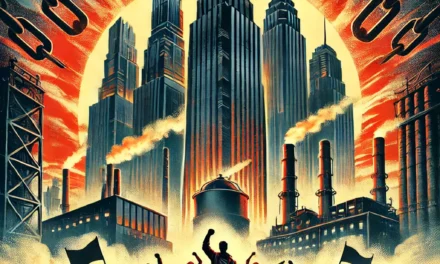

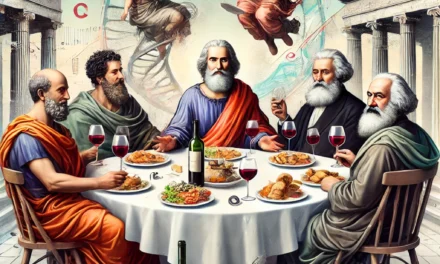
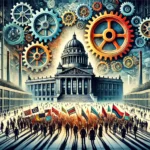

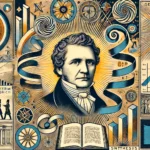










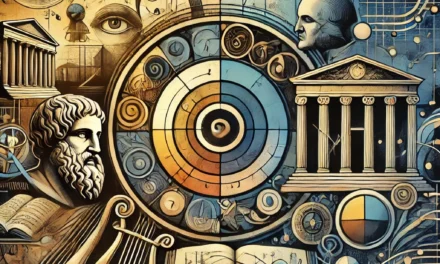
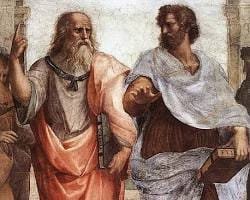
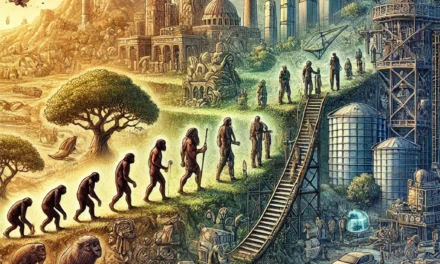
Trackbacks/Pingbacks